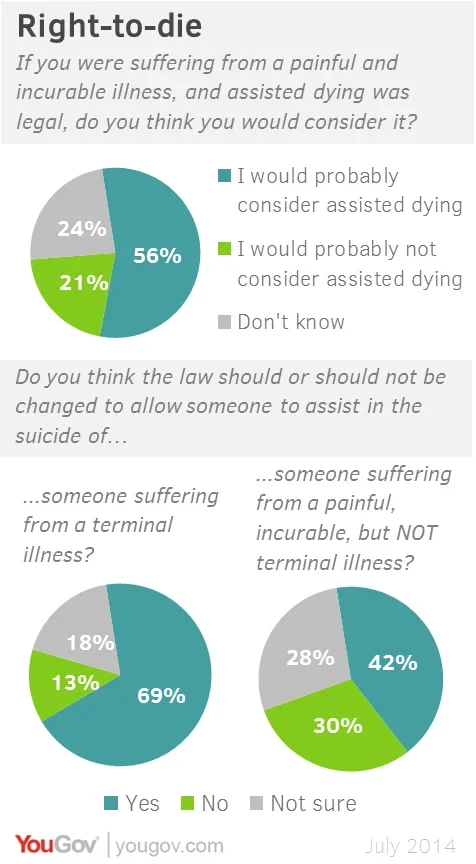Most people would consider assisted dying if they were suffering a painful terminal illness, and seven in 10 support legalising it in those circumstances
Recently campaigners lost an appeal to the UK Supreme Court to have the law changed to allow assisted suicide, but the judges pushed Parliament to act. As the ruling was handed down peers joined these calls, and stressed the importance of sending through to Parliament the Assisted Dying Bill tabled by Lord Falconer.
The latest YouGov research, conducted for the Sunday Times, finds not only that a decisive majority of British people back legalising some form of assisted suicide – but most people would consider assisted dying themselves in certain circumstances.

56% of the public would consider assisted dying if it were legal and they were suffering a painful and incurable disease. Only a fifth (21%) rule the practice out completely while another quarter (24%) don’t know if they would consider it.
An even larger number, 69%, think the law should be changed to make assisted dying for people with terminal illnesses, whatever their personal considerations. Just 13% of the public say the law should not be changed, and 18% don’t know. This level of support is similar to where it has been when YouGov has asked the question in the past.
There is little variation in feelings about the issue by age, gender or other demographics. However, support for changing the law is weaker with regard to illnesses that are painful and incurable, but not terminal. 42% think assisted dying should be legal in these circumstances, while 30% think it should not be. 28% don’t know.
The latest appeal dealing with the issue of assisted dying was put forward by the family of the late Tony Nicklinson, who had “locked-in syndrome” and Paul Lamb, who was badly injured in a car accident. Campaigners recently won the backing of a major medical journal. In an editorial, the doctors said the terminally ill should be allowed to “call time on life”.
Image: Getty








